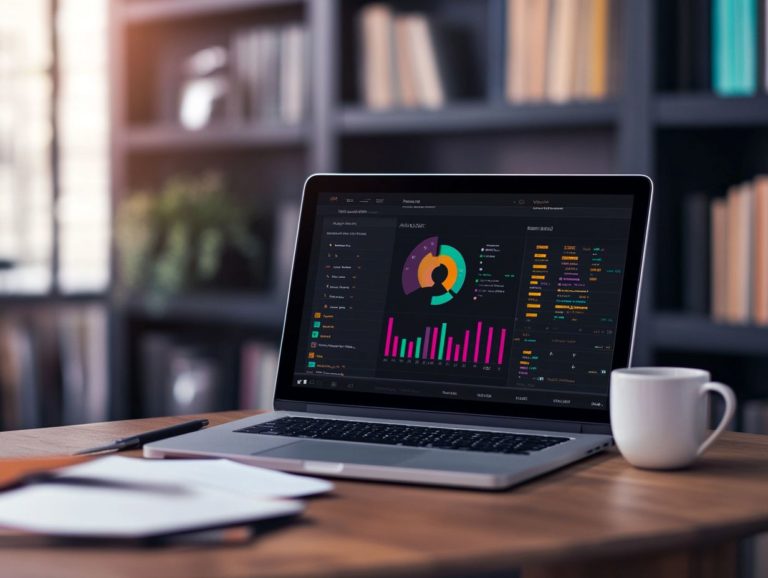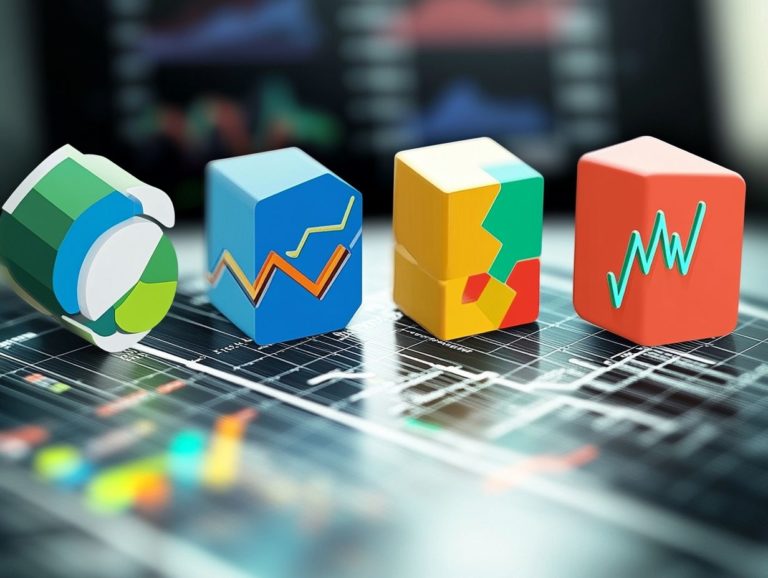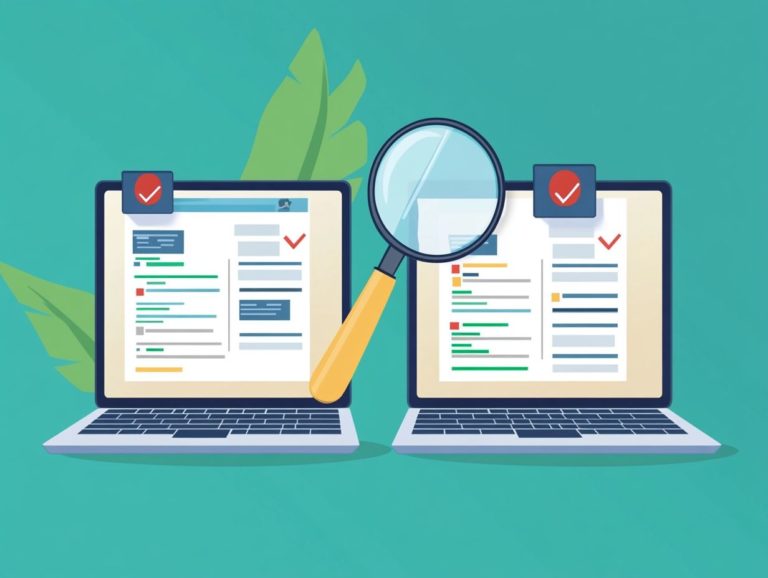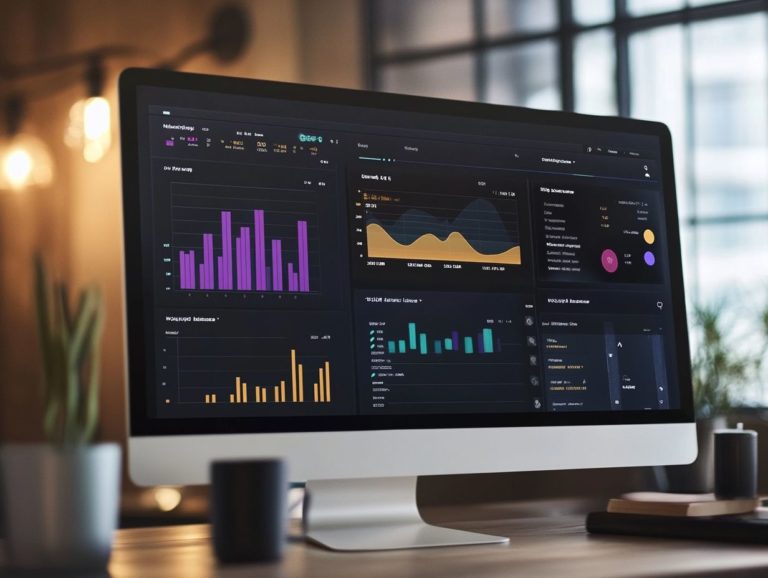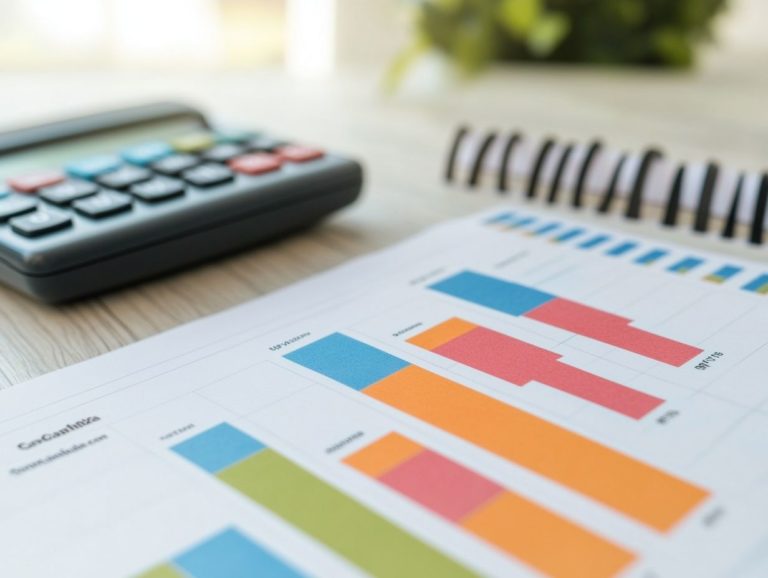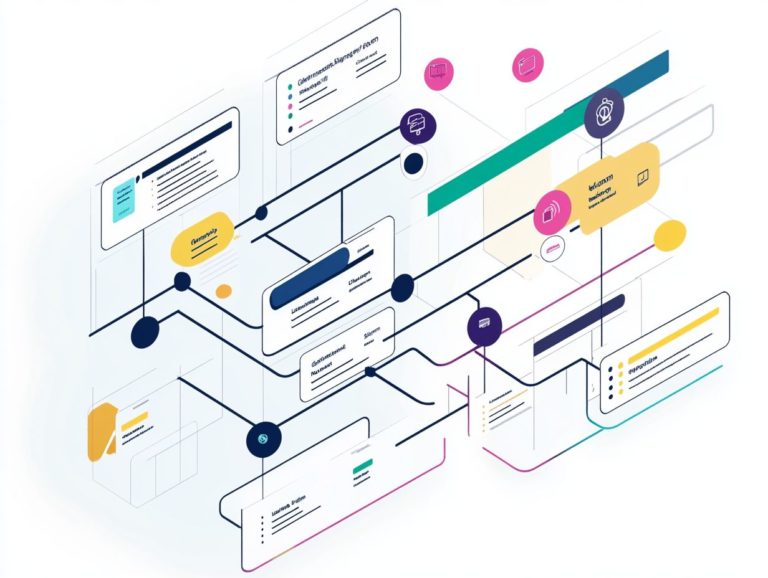Comparison of CRM Security Features
In today s digital landscape, safeguarding customer data is paramount. CRM security is an essential consideration for businesses of all sizes.
Let s explore the key CRM security features you need to know, including authentication, data encryption, and access that depends on user roles. Each feature has its own strengths and weaknesses.
When choosing a CRM system, it s vital to ensure it aligns with your business needs and compliance requirements.
You ll uncover best practices for implementing robust CRM security measures that guarantee data protection and privacy.
Act now to secure your customer relationships!
Contents
- Key Takeaways:
- What is CRM Security?
- Types of CRM Security Features
- Comparison of CRM Security Features
- Factors to Consider When Choosing a CRM
- Best Practices for Implementing CRM Security
- Frequently Asked Questions
- What is the importance of comparing CRM security features?
- What are some common security features found in CRM systems?
- How do CRM systems handle user authentication?
- What is the role of access control in CRM security?
- Can CRM security features be customized to fit specific business needs?
- What are some additional security considerations when comparing CRM systems?
Key Takeaways:
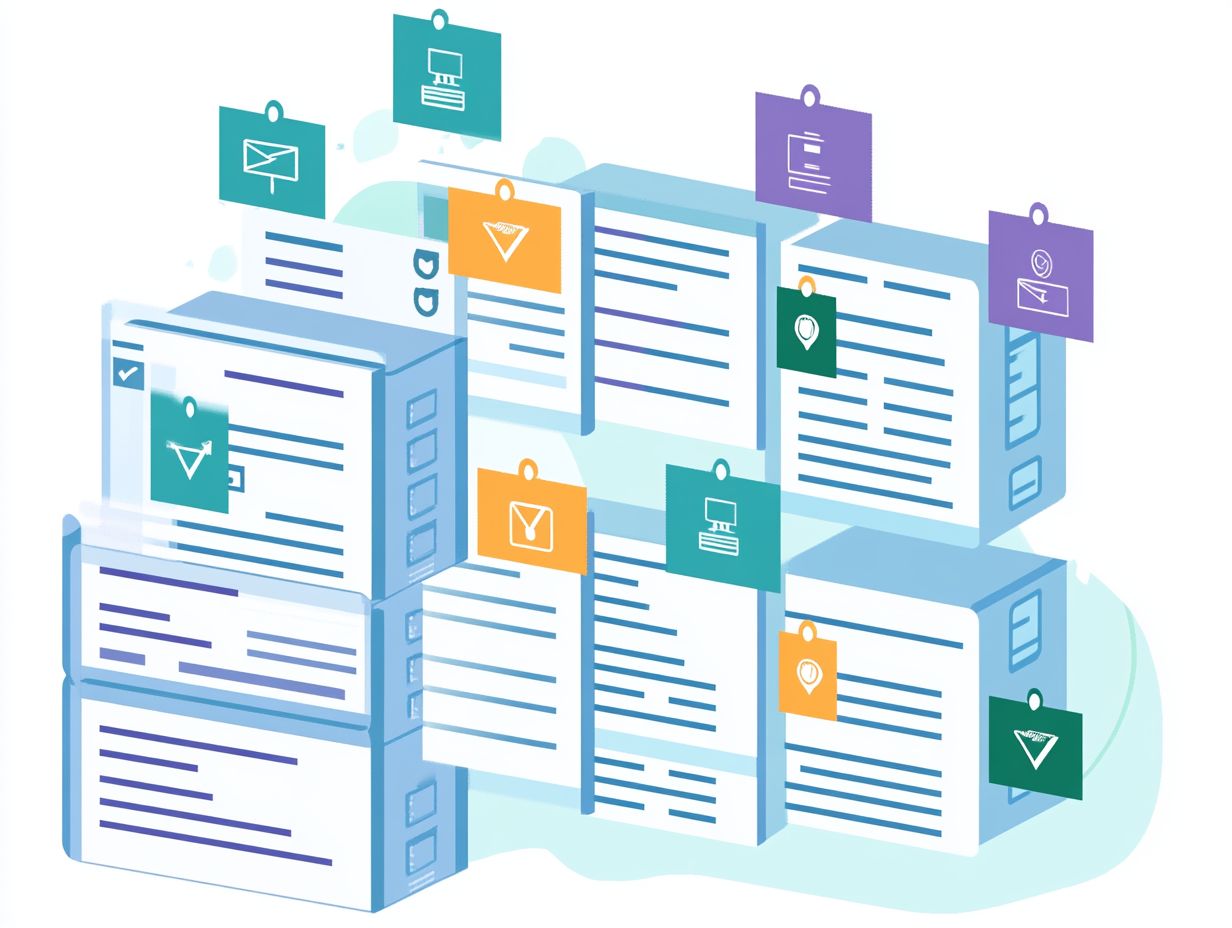
CRM security features vary in strengths and weaknesses. It’s important to understand the different types of features, such as authentication, encryption, and access controls. Determine which ones are most crucial for your business needs and compliance requirements.
Data protection and privacy should be top priorities when implementing CRM security.
Activity monitoring and access controls help ensure data is only accessed by authorized individuals and track any suspicious activity.
Choosing a CRM with strong security measures is crucial for protecting sensitive data and maintaining compliance. Consider your business needs and compliance requirements when selecting a CRM, and follow best practices for implementing security features to ensure the safety and privacy of your data.
What is CRM Security?
CRM security involves strategies and technologies aimed at safeguarding sensitive information within customer relationship management systems. As you navigate compliance complexities with regulations like GDPR and CCPA, understanding CRM security becomes essential.
With businesses relying more on data-driven insights to improve customer interactions and streamline operations, it’s crucial to implement measures that protect valuable customer data. This prevents unauthorized access and data breaches, while also complying with modern data privacy laws.
To achieve effective protection, consider using access controls, which limit information access based on user responsibilities. This minimizes risks from insider threats.
When you combine this with multi-factor authentication a security measure that requires more than one form of verification you add an extra layer of security.
Using encryption technologies keeps your data safe, even if it is intercepted. By prioritizing these strategies, you can build trust with your customers, enhance your reputation, and ensure that confidential information stays protected in today s complex digital landscape.
Types of CRM Security Features
Understanding the different types of CRM security features is crucial if you want to protect customer data and uphold high standards of data security in your business software. For a deeper insight, check out the ultimate CRM comparison to see how features stack up against pricing.
Key features to consider include:
- Access controls, which guarantee that only authorized personnel can access specific data.
- Multi-factor authentication, providing an extra layer of security.
- Encryption that safeguards sensitive information during both transmission and storage.
- An audit trail, which offers a thorough record of all activities within the system.
These features not only bolster your security measures but also help ensure compliance with data protection regulations.
Contact us today to learn how to secure your data effectively!
Authentication and Authorization
Authentication and authorization are key to CRM security. They ensure that only legitimate users can access sensitive information and perform actions based on their roles.
Authentication is your first defense. It verifies the identity of users trying to access the system using passwords, biometrics, or multi-factor authentication (MFA).
Once authenticated, authorization kicks in. It determines what you can do within the CRM system, usually managed through role-based access control (RBAC).
For instance, a sales rep might view and edit customer info, while an admin could access more sensitive data and settings. This clear differentiation is vital for efficiency and compliance with data protection regulations.
By ensuring only authorized personnel access sensitive info, you minimize the risk of data breaches and safeguard your organization s integrity.
Data Encryption
Data encryption is crucial in CRM systems. It shields sensitive information from unauthorized access and ensures security both at rest and in transit.
Encryption transforms data into a coded format, making it unreadable to anyone without the decryption key. This is essential for organizations handling personal or financial info, helping to meet compliance requirements like GDPR and CCPA.
You can use various encryption techniques, including symmetric and asymmetric encryption, to enhance your CRM security.
Symmetric encryption uses one key for both encryption and decryption, allowing quick access for authorized users. Asymmetric encryption, on the other hand, employs two keys, boosting security by keeping them separate.
Technologies like TLS (Transport Layer Security) are critical for securing data in transit across networks. By implementing these strategies, you protect sensitive information and build trust with your customers.
Role-Based Access Control
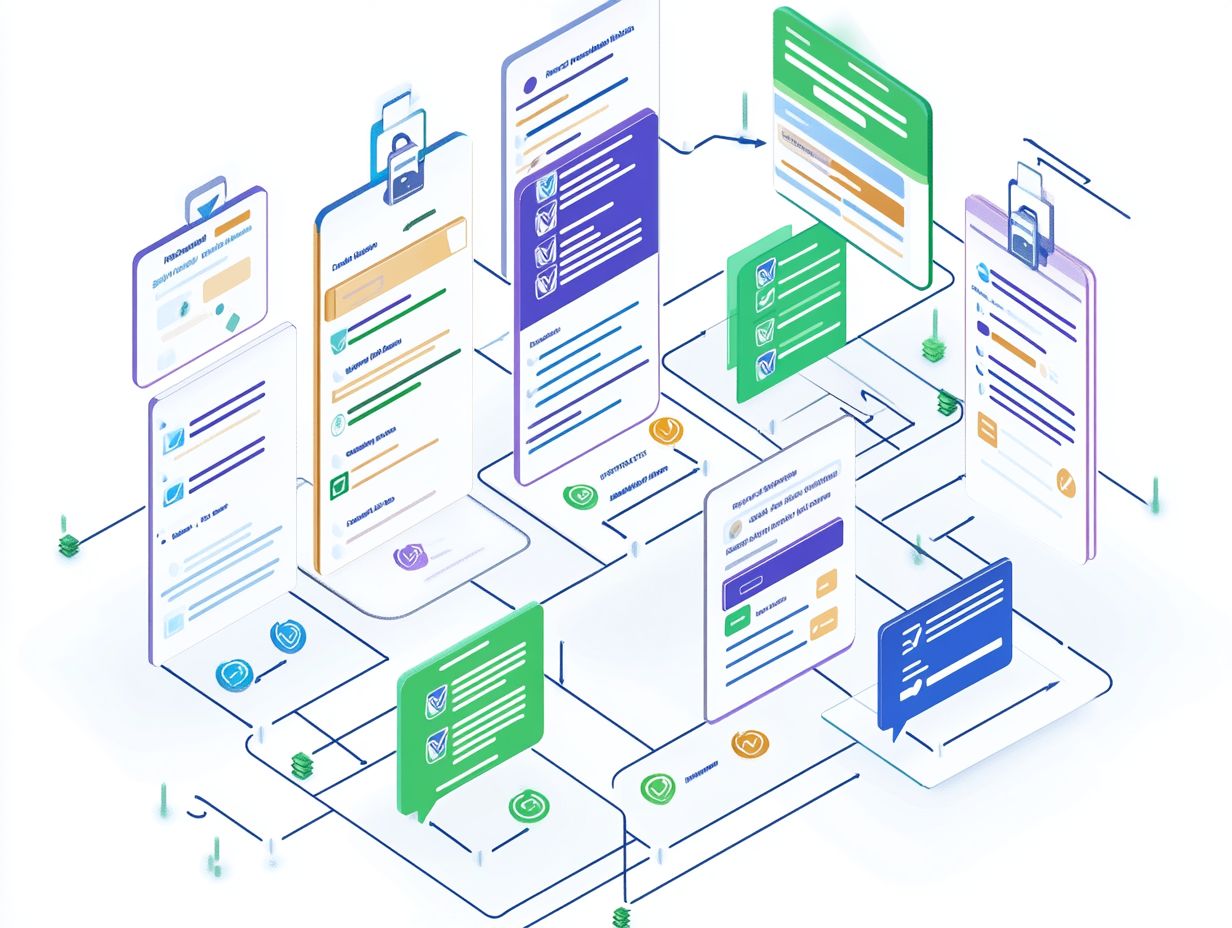
Role-based access control (RBAC) is essential for CRM security. It limits access to sensitive information based on an individual’s role in the organization.
RBAC assigns permissions tailored to specific jobs. This ensures only authorized personnel can view or manipulate critical data, enhancing security and reducing the risk of breaches.
In a CRM setting, for example:
- A sales representative can view customer records and update sales opportunities.
- A finance officer accesses financial data and generates reports.
- An administrator has comprehensive rights to modify roles and permissions.
Clearly defining these roles helps mitigate unauthorized access. This protects the confidentiality of sensitive client information and ensures compliance with regulations like GDPR and HIPAA.
This structured approach fosters a secure environment and boosts workflow efficiency. You and your colleagues can focus on your responsibilities without facing unnecessary obstacles.
Activity Monitoring
Activity monitoring serves as a vital security measure in CRM systems, allowing you to track user actions and ensure compliance while enhancing data security. By maintaining an audit trail of all activities, you can identify suspicious behavior and potential vulnerabilities within your CRM.
This practice protects sensitive information and boosts compliance, keeping your business safe. It provides a clear record of who accessed or altered data and when.
Along with pinpointing unauthorized access, keep an eye on activities like login attempts, data exports, and changes to user permissions. These insights empower you to respond swiftly to any anomalies, minimizing the risk of data breaches.
A robust activity monitoring system becomes invaluable during audits, helping to mitigate risks associated with non-compliance.
By documenting each user interaction, you reinforce your accountability and demonstrate diligence in protecting customer data. Effective activity monitoring not only strengthens your data security measures but also fosters trust among clients and stakeholders.
Comparison of CRM Security Features
A thorough comparison of CRM security features empowers you to evaluate the strengths and weaknesses of the diverse options available in the market, especially when you consider the key features to compare in CRM software.
This process enables you to make informed decisions that align seamlessly with your data security requirements.
By scrutinizing features such as role-based access control, encryption, and audit trails, you can identify which CRM systems are best suited to meet your compliance needs and enhance your overall security posture, understanding the importance of security in CRM implementation.
Strengths and Weaknesses of Each Feature
Each CRM security feature, from role-based access control to multi-factor authentication (a security measure requiring two or more verification methods), has its own unique strengths and weaknesses that can profoundly influence your organization s data security strategy. Grasping these nuances is crucial for you to tailor your security measures effectively and make sure they fit your business needs and rules.
For instance, role-based access control enables your organization to ensure that employees only access data pertinent to their job functions, significantly minimizing the risk of internal breaches. However, if access rights are not regularly reviewed, this approach could lead to outdated permissions, exposing sensitive data to unauthorized individuals.
On the flip side, multi-factor authentication dramatically enhances your defenses against unauthorized logins. Yet, it may complicate the user experience, leading to an uptick in helpdesk inquiries.
A compelling case study from a prominent financial institution underscores this delicate balance. After implementing robust CRM security features, they achieved a remarkable 40% reduction in data breaches. This highlights the importance of regularly evaluating these security tools to keep pace with evolving compliance standards.
Factors to Consider When Choosing a CRM
When choosing a CRM system, it’s crucial to consider a variety of factors to ensure it meets your business needs and compliance requirements, especially regarding data security. Make sure the CRM can effectively protect sensitive information in accordance with regulations like GDPR and CCPA.
You should assess your specific operational needs, such as reporting capabilities and workflow automation.
Business Needs and Compliance Requirements
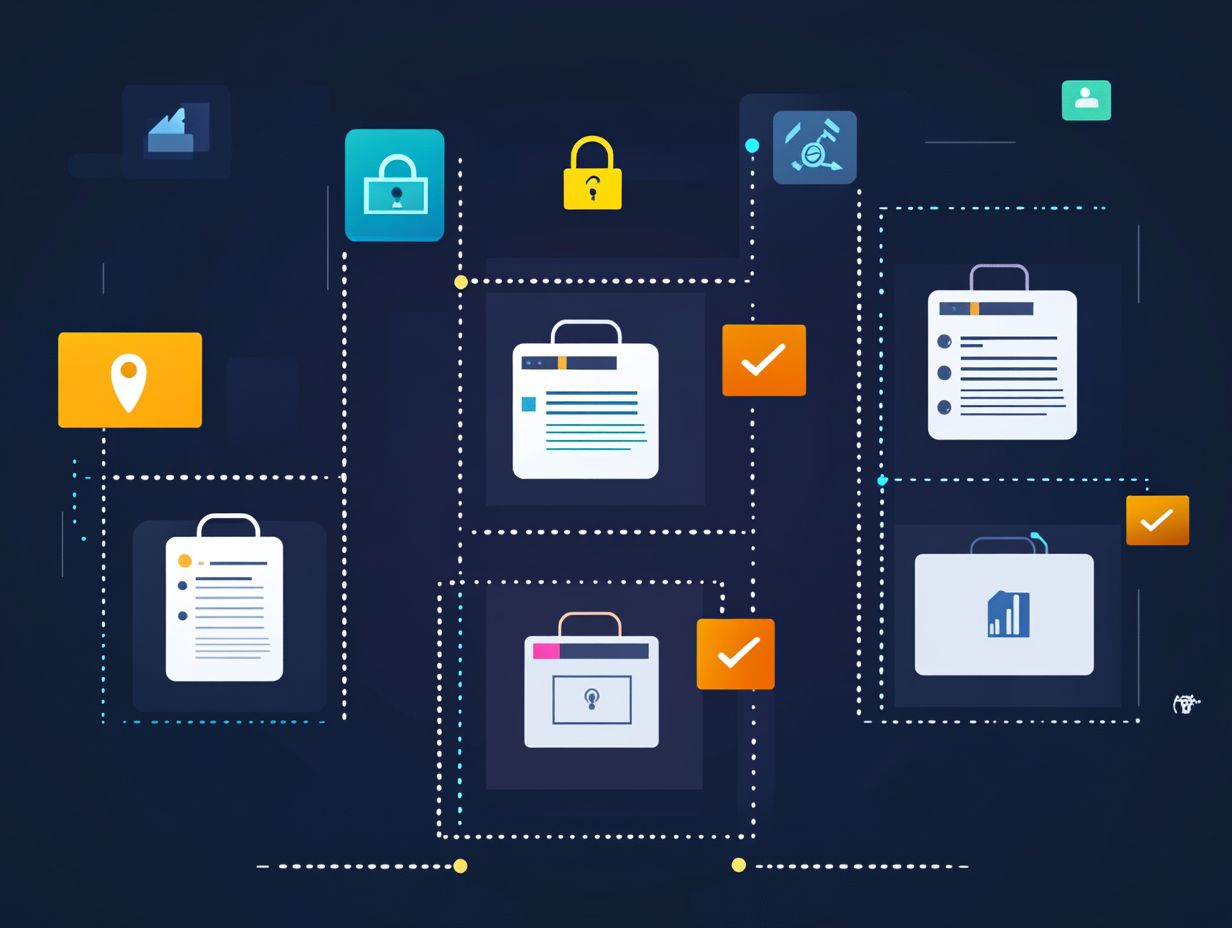
Understanding your business needs and compliance requirements is crucial when selecting a CRM, as it significantly impacts data security measures and overall system functionality. You need to assess your specific operational goals alongside regulatory mandates like GDPR and CCPA to ensure the CRM you choose offers the necessary safeguards for sensitive information.
To effectively pinpoint these needs, start with a thorough analysis of your current processes and workflows. This means mapping out customer interactions and gaining a clear understanding of how data is stored, accessed, and utilized across different departments. Involving key stakeholders from sales, marketing, and IT can provide you with invaluable insights into specific functionalities that could enhance productivity.
You should also consider the integration capabilities with your existing tools, scalability for future growth, and ease of use to ensure that your employees are on board. By conducting this comprehensive evaluation, you can make informed decisions that not only meet compliance standards but also propel your strategic objectives forward.
Best Practices for Implementing CRM Security
Implementing effective CRM security demands your commitment to best practices that focus on keeping data safe and private. This ensures that sensitive information remains secure throughout its lifecycle.
Adopt a strong strategy that includes technological solutions such as encryption and multi-factor authentication.
Investing in employee training is also crucial. Establishing clear policies will help you guard against data breaches and maintain compliance with industry regulations.
Tips for Ensuring Data Protection and Privacy
To ensure data protection and privacy in your CRM systems, adopt a suite of best practices that address the unique challenges of safeguarding sensitive information. Start by conducting regular security audits and providing comprehensive employee training.
Implement robust tools such as multi-factor authentication and encryption. These measures will strengthen your system against potential breaches.
Establishing clear protocols for data access control is essential. Only authorized personnel should have the ability to retrieve sensitive information.
Incorporating data masking techniques during development and testing phases can shield identifiable details from prying eyes.
Regular assessments, including vulnerability scans and penetration testing, are vital. They help identify and address risks before they escalate into serious issues.
By fostering a culture of data privacy among your employees and continuously updating your policies to tackle evolving threats, you can significantly enhance your CRM security posture.
By being proactive, you not only keep your clients trust but also stay ahead of regulations!
Frequently Asked Questions
What is the importance of comparing CRM security features?
Comparing CRM security features allows businesses to choose a system that best fits their security needs. It also helps identify potential gaps or vulnerabilities in the system, ensuring the protection of sensitive customer data. To better understand these aspects, it’s important to consider how secure CRM software is.
What are some common security features found in CRM systems?
- Data encryption
- Access control
- Audit trails
- User authentication
These features help protect against data breaches, unauthorized access, and other security threats.
How do CRM systems handle user authentication?
CRM systems use various methods for user authentication, such as passwords, biometric verification (including methods like fingerprint scans and facial recognition), and multi-factor authentication. Some systems offer the flexibility to integrate with an organization’s existing user authentication system.
What is the role of access control in CRM security?
Access control allows administrators to manage who can access specific data or features within the CRM system. This helps prevent unauthorized users from accessing sensitive customer information, ensuring data privacy and security.
Can CRM security features be customized to fit specific business needs?
Yes, many CRM systems offer customizable security features to meet the unique security requirements of different businesses. This allows organizations to tailor their security measures based on their industry, size, and other specific needs.
What are some additional security considerations when comparing CRM systems?
Other important factors to consider include:
- Data backup and recovery options
- Regular security updates and patches
- The ability to restrict access to certain geographical locations or devices

